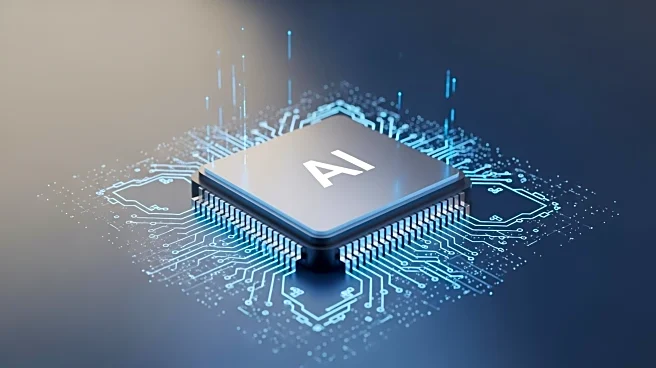What's Happening?
OpenAI has announced measures to address unauthorized deepfakes generated by its Sora 2 text-to-video tool, following complaints from celebrities including Bryan Cranston. The actors' union SAG-AFTRA highlighted
the misuse of celebrity likenesses without consent, prompting OpenAI to strengthen its policies. The company supports the NO FAKES Act, aimed at preventing AI-generated videos depicting individuals without their permission. OpenAI's commitment to protecting performers' rights reflects its response to public and industry concerns.
Why It's Important?
The crackdown on deepfakes by OpenAI addresses significant ethical and legal challenges in the AI industry. Unauthorized use of celebrity likenesses raises concerns about privacy, intellectual property rights, and the potential for misinformation. OpenAI's actions may influence industry standards and regulatory approaches, impacting how AI technologies are developed and deployed. The support for the NO FAKES Act highlights the need for legislative frameworks to protect individuals from AI misappropriation.
What's Next?
OpenAI's strengthened enforcement of its opt-in policy may lead to increased collaboration with talent agencies and industry stakeholders. The company's proactive stance could set a precedent for other AI developers, encouraging responsible use of technology. As discussions around the NO FAKES Act continue, stakeholders may advocate for comprehensive regulations to address deepfake concerns, shaping the future of AI governance and ethical standards.










